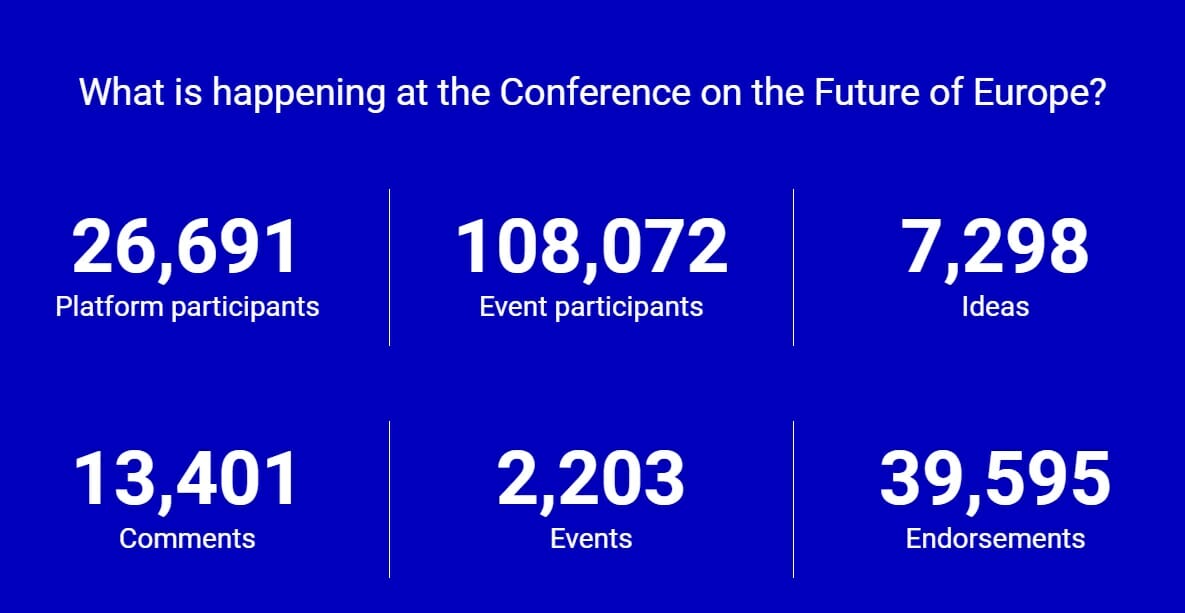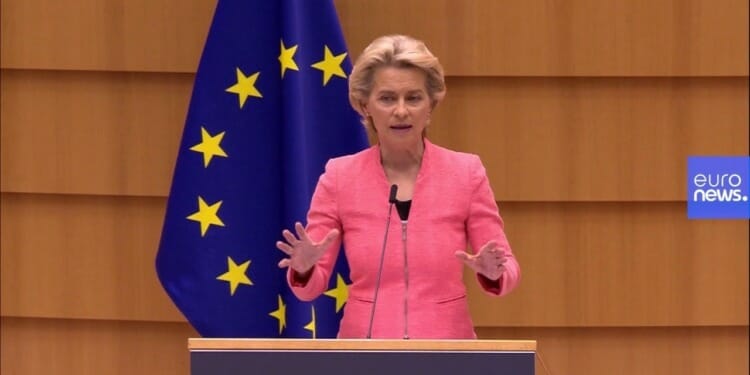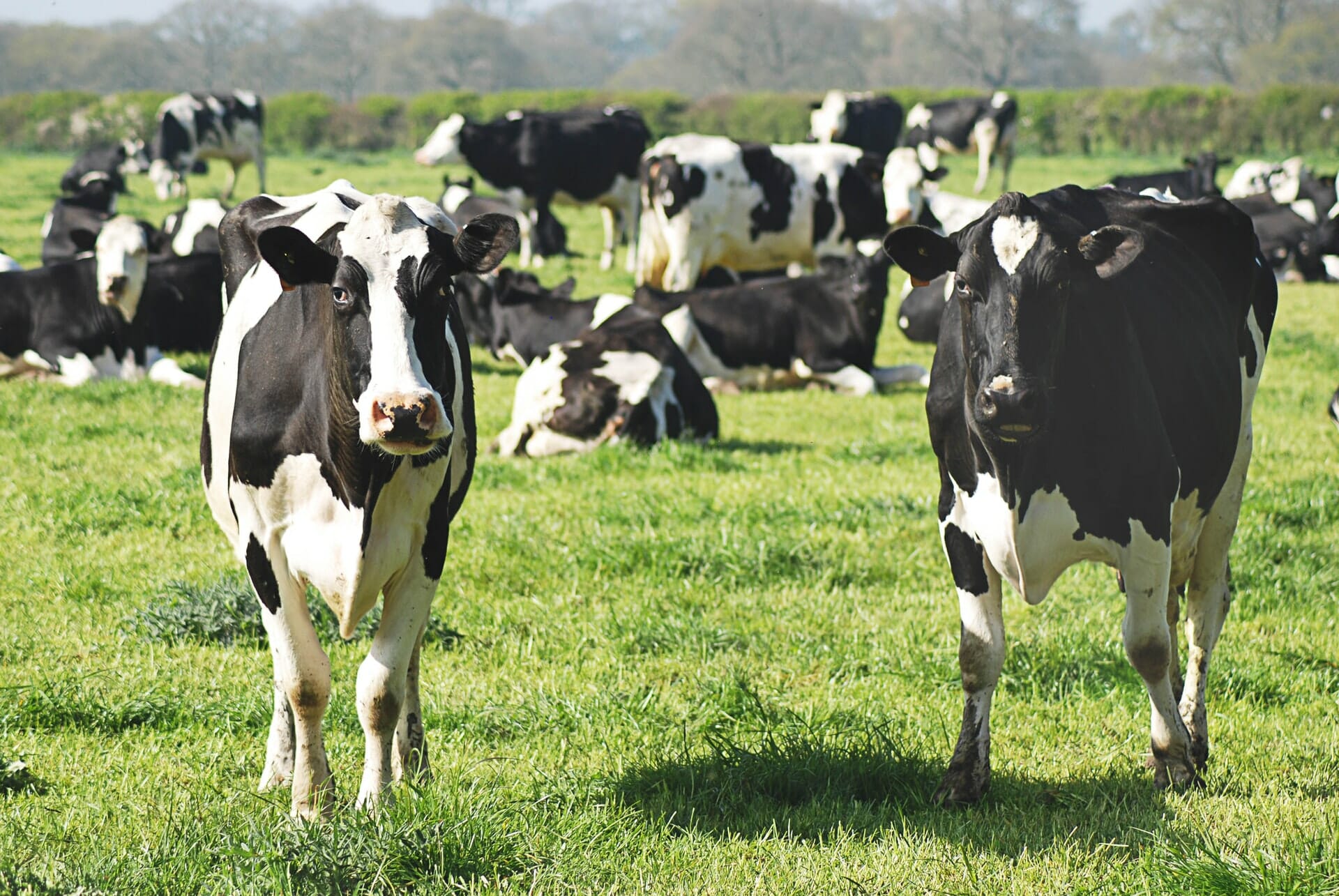Ursula von der Leyen, the EU Commission Chief addressed the European Parliament today giving her much-awaited State of the Union Address.
Evoking the pandemic and what it did to our lives, she started off with a striking statement:
But as I look back on this past year, if I look at the state of the Union today, I see a strong soul in everything that we do. (emphasis added)
It was Robert Schuman, one of the founders of the European project, who said: “Europe needs a soul, an ideal, and the political will to serve this ideal.”
She noted that in facing “the gravest planetary crisis of all time, again we chose to go it together with the European Green Deal.” But “corona times are not over” and “next year will be another test of character”. And what gives her hope is that “we can draw from Europe’s young people.” As she sees it, the “Union will be stronger if it is more like our next generation: reflective, determined and caring. Grounded in values and bold in action.”
As expected, she recalled the EU Commission success in addressing the pandemic, both within Europe and abroad, delivering vaccines to the rest of the world:
More than 70 percent of adults in the EU are fully vaccinated. We were the only ones to share half of our vaccine production with the rest of the world. We delivered more than 700 million doses to the European people, and we delivered more than another 700 million doses to the rest of the world, to more than 130 countries.
And she proudly concluded: “We did it the right way, because we did it the European way. And it worked!” (emphasis added) And predictably, she bragged about the European Digital Covid Certificate, highlighting that it was done very fast – proposed in March, achieved in July – and that now “more than 400 million certificates have been generated across Europe. 42 countries in 4 continents are plugged in.”
And she reminded MEPs that the response to the pandemic was comprehensive: SURE was created and 31 million workers and 2.5 million companies across Europe were supported during the pandemic – making it easier to recover fast. And now, she noted, economic growth in the euro area “outpaced both the US and China in the last quarter.”
She recalled that her plans for Europe – embodied in NextGenerationEU – involve investment in “both short-term recovery and long-term prosperity”. The goal is to “address structural issues in our economy: from labour market reforms in Spain, to pension reforms in Slovenia or tax reform in Austria”. Her vision can be briefly summarized in a few crucial points:
-
- Working towards a European Health Union: Three goals: (1) speed up global vaccination with one billion Euro invested in Africa to ramp up mRNA production capacity and commitment for another 250 million doses now and another 200 million doses by the middle of next year; (2) continue in Europe with 1.8 billion additional doses, “enough for our neighborhood and when booster doses are needed”; (3) proposing a “new health preparedness and resilience mission for the whole of the EU” backed up by an investment of EUR 50 billion by 2027.
- Investing in European tech sovereignty: A new European Chips Act is proposed to produce semi-conductors to break off dependency on Asian chip manufacturers; this is added to what is already part of European digital policies that include fighting the monopolistic or “gatekeeper power” of “major platforms” (read Google, Apple, Facebook, Amazon), enforcing “the democratic responsibility of those platforms”, foster innovation in Europe and channel the power of artificial intelligence.
-
- A new European Social Care Strategy: This involves implementing a European Pillar of Social Rights with the goal “to ensure decent jobs, fairer working conditions, better healthcare and better balance in people’s lives”; to finance this will require companies to pay “their fair share” in taxes, fight evasion and “do everything in our power to seal the historic global deal on minimum taxation”.
-
- A renewed Focus on European Youth: Several steps are proposed: (1) ALMA, a new programme to “step up our support to those who fall into the gaps – those not in any kind of employment, education or training”; (2) make 2022 the Year of European Youth and ensure that “young people can help lead the debate in the Conference on the Future of Europe.”

-
- Fighting climate change: Several policies: (1) to the well-known European Green New Deal a new Social Climate Fund is proposed “to tackle the energy poverty that already 34 million Europeans suffer from” – this comes on top of turning “our climate goals into legal obligations”; (2) external funding for biodiversity, in particular for the most vulnerable countries, will be doubled; (3) coming to COP 26 in Glasgow, the EU will continue to back climate finance which is essential for the least developed and most vulnerable countries – both for mitigation and adaptation – and now proposes an additional 4 billion euro for climate finance until 2027 (of the 100 billion dollars needed each year till 2025, the EU has provided 25 billion each year).
-
- Working Towards a European Defence Ecosystem: Several steps proposed: (1) build a Joint Situational Awareness Centre to provide the needed information for collective decision-making; (2) improve interoperability, investing in common European platforms, from fighter jets, to drones and cyber – this is already done but there is a need to “keep thinking of new ways to use all possible synergies”, like, for example, waiving VAT; (3) a European Cyber Defence Policy, including legislation on common standards under a new European Cyber Resilience Act; (4) under the upcoming French Presidency in the first half of 2022, President Macron and the EU Commission will convene a Summit on European defence.
-
- Deepening partnerships with closest allies: (1) the US, to develop “our new agenda for global change – from the new Trade and Technology Council to health security and sustainability”; (2) the Western Balkans, “ramping up our support through our new investment and economic plan, worth around a third of the region’s GDP”; (3) implementing the new Agenda for the Mediterranean and “continuing to work on the different aspects of our relationship with Turkey.”
-
- Becoming a more active global player: (1) Proposing in the coming weeks a new, wider Afghan Support Package to avoid a looming humanitarian crisis and address a broad range of human rights concerns; (2) a new EU – Indo-Pacific strategy to counter Chinese influence, designed to deepen trade links, strengthen global supply chains and develop new investment projects on green and digital technologies; (3) building Global Gateway partnerships with new investments in quality infrastructure, connecting goods, people and services around the world, using a “values-based approach, offering transparency and good governance to our partners”: It will be priority for regional summits – starting with the next EU-Africa Summit in February; (4) products made by forced labour will be banned from the EU market.
-
- Responding to “hybrid” border attacks and developing a common migration policy to “stand together with Lithuania, Latvia and Poland” against Belarus’ “hybrid attack to destabilise Europe” sending “people on planes and literally push[ing] them towards Europe’s borders”; calling for the New Pact on Migration and Asylum – which “ gives us everything we need” – to be accepted by all member states.
-
- Unwavering support to the rule of law: (1) EU Commission’s Rule of Law reports (which have led for example, to justice reforms in Malta or corruption inquiries in Slovakia), starting in 2022, will come with “specific recommendations” to Member State, a strengthening in guaranteeing people’s rights to an independent judiciary and to be treated equally before the law (Hungary and Poland take note!); (2) a new law to combat violence against women – from prevention to protection and effective prosecution, online and offline – will be proposed by year-end; (3) a Media Freedom Act to preserve journalists independence will be proposed next year.
A comprehensive and ambitious menu of actions. Predictably, European Parliament members who talked afterward reacted in line with their parties and nationalities, from the extreme right objecting to an expansion of European institution “powers” seen as “detrimental” to the “integrity of the Union treaties” – a clever way of touting nationalism and a revival of a “Europe of Nations” – to the extreme left, more concerned with equality questions than European defence.
Overall, the speech was well-received with hearty applause, as von der Leyen, in closing, referred to the extraordinary example of Beatrice Vio, the Italian athlete, who after fighting for her life, won the Paralympic gold medal.
Bebe Vio, said von der Leyen, had “managed to achieve all of that by living up to her belief that – if it seems impossible – then it can be done. Se sembra impossibile, allora si può fare.” That, she concluded, was “the spirit of Europe’s founders and this is the spirit of Europe’s next generation.”
An inspiring, hopeful note to end on.
Editor’s Note: The opinions expressed here by Impakter.com columnists are their own, not those of Impakter.com. — In the Featured Photo: EU Commission Chief Ursula von der Leyen delivers her speech at European Parliament, September 15, 2021.









